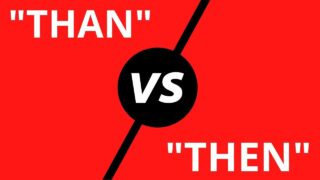As much as experts try to make all languages more accessible to everyone, the English language remains a work in progress –just like the others. In English, “possessives” are one of the trickiest concepts to master because a catch-all explanation cannot suffice in dealing with all of its nooks and crannies. More particularly, people seem …
Grammar
Have you ever wondered why some grammatically-correct expressions still seem to be troublesome and unfitting sometimes? By and large, people appear to be confused as to whether the phrase “speaking with you” or “speaking to you” is the right way of prompting a conversation. So, this post discusses the subtleties between these two tricky English …
Just like all other languages out there, a wide range of confusing expressions exists in the English language due to minute grammatical differences. The expressions “stay tuned,” “stay in tune,” and “staying tuned” are some of them; so, this article aims to explain these troublesome phrases inside out. Now that we know what’s going on, …
Two of the most important parts of speech in all languages are nouns and verbs. While nouns are quite easy to learn, verbs are relatively more challenging. Verbs are made up of several types, and one of them is what we refer to as “linking verbs.” Perhaps, you may have heard of your grade-school teacher …
Words that are only a vowel different from each other naturally trick language users all the time, natives and non-natives alike. Just like “bad” and “bed,” “pat” and “pet,” and “mat” and “met,” the words “than” and “then” only differ in their middle vowel sound. So, if you’ve been having a challenging time distinguishing the …
Not everyone is interested in how languages work. But, whether we like it or not, the creative and playful nature of language does tickle the curiosity of its users every once in a while. Native speakers seldom get bothered by linguistic subtleties; however, the non-natives often want to go an extra mile deeper for the …
Remembering abbreviations is naturally difficult especially when the expressions involved are particularly used within specific language communities. But, in fact, there are a lot of abbreviations out there that you must already be familiar with, just like some internet slang terms such as “TBH,” “SMH,” and “TGIF.” While this is the case, many other abbreviated …
You are writing, and you’ve come to a point wherein you need to use a particular word. But, as you keep on going, you suddenly want to use a word that means “non-professional” to express an idea that’s dangling in your head more precisely. You remember the word “mature,” which means “old enough.” However, you …
Sometimes, knowing the definition of a word is not really enough. Sometimes, you also need to see how it can be used in various types of sentences to really understand it. In the blog post below, we’ll show you some examples of how “analyze” is used in a sentence. This will help you rest easy …









